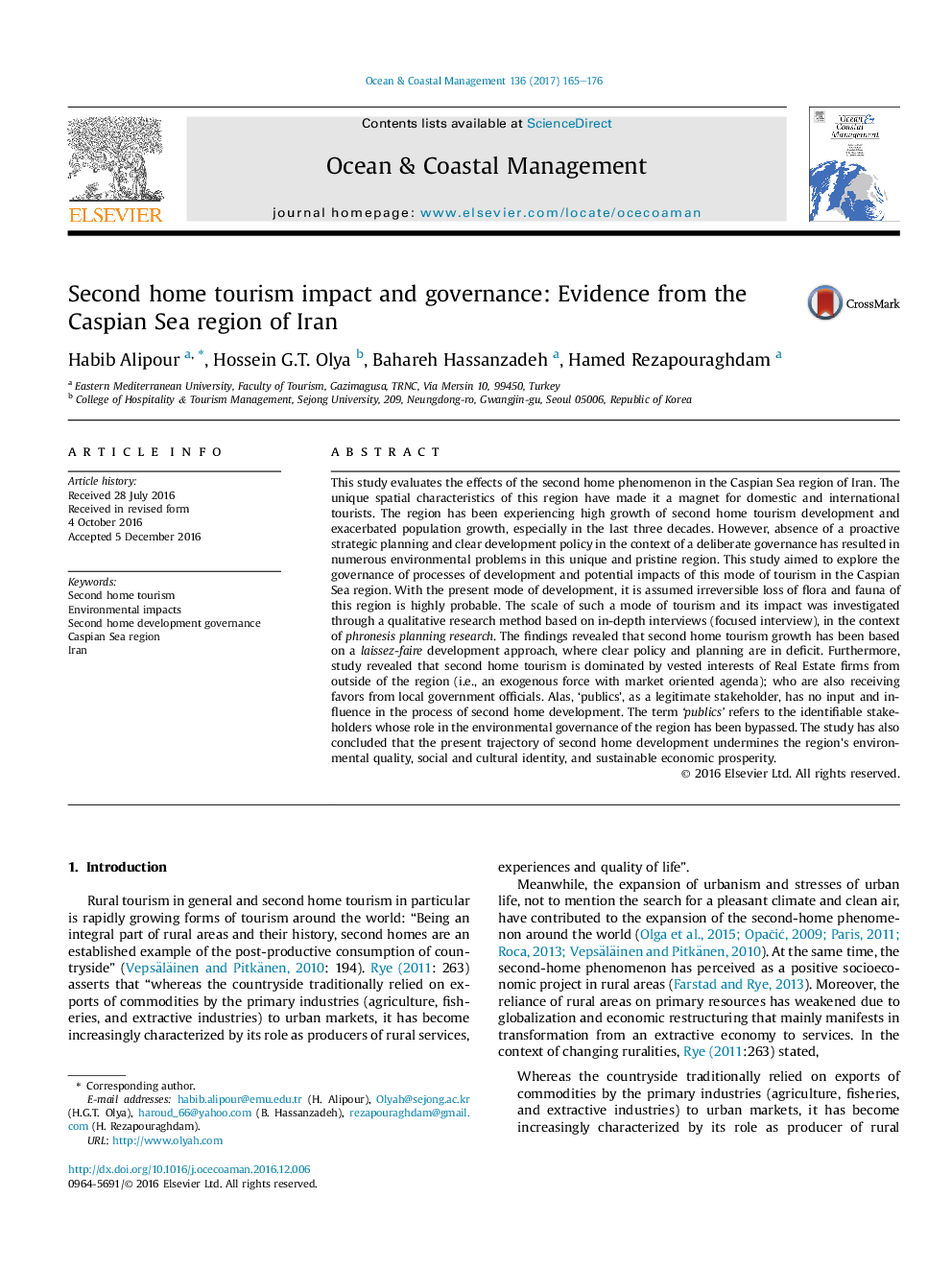ترجمه فارسی عنوان مقاله
دومین تاثیر گردشگری خانه و حکومت: شواهد از منطقه دریای خزر ایران
عنوان انگلیسی
Second home tourism impact and governance: Evidence from the Caspian Sea region of Iran
| کد مقاله | سال انتشار | تعداد صفحات مقاله انگلیسی |
|---|---|---|
| 102987 | 2017 | 12 صفحه PDF |
منبع

Publisher : Elsevier - Science Direct (الزویر - ساینس دایرکت)
Journal : Ocean & Coastal Management, Volume 136, February 2017, Pages 165-176
ترجمه کلمات کلیدی
دومین خانه گردشگری، اثرات زیست محیطی، حکومت توسعه دوم خانه منطقه دریای خزر، ایران،
کلمات کلیدی انگلیسی
Second home tourism; Environmental impacts; Second home development governance; Caspian Sea region; Iran;

